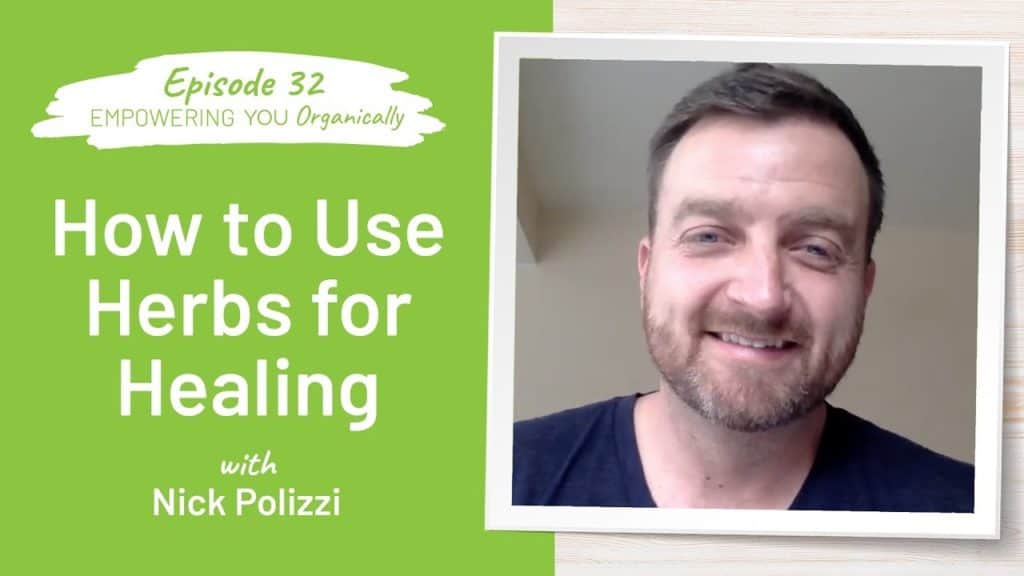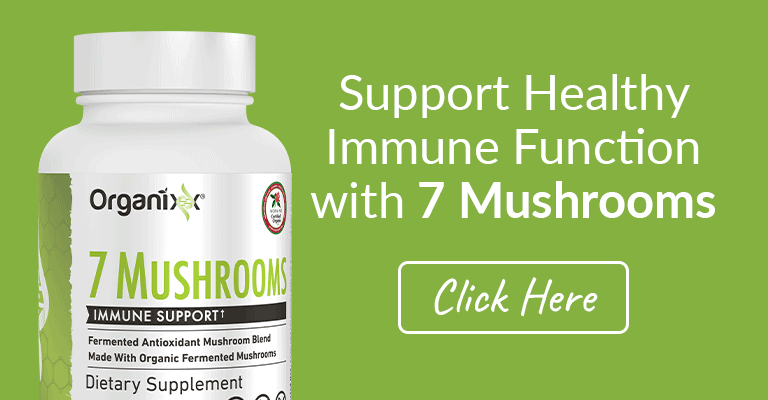Empowering You Organically – Season 5 – Episode 32
Title: How to Use Herbs for Healing
Hosts: Jonathan Hunsaker, TeriAnn Trevenen
Guest: Nick Polizzi
Description: What is “green medicine”? Tune in this week as the incredible Nick Polizzi shares his knowledge on herbal remedies. Nick shares his wounded healer story and then we dive into the history of herbalism, some of Nick’s go-to herbs for calming the mind chatter and easing stress, as well as what to expect when visiting an herbalist. And you don’t want to miss his #1 tip for all of us!
* * *
About Nick Polizzi
- Nick Polizzi has been making documentary films for the past ten years. The titles he has been a part of include Remedy: Ancient Medicines for Modern Illness, The Sacred Science‚ Simply Raw – Reversing Diabetes in 30 Days‚ and The Tapping Solution.
- His work is guided by a fascination with the healing remedies of civilizations around the world and how they can be used to heal the diseases of today. Nick is driven by a calling to honor, preserve, and protect the ancient knowledge and rituals of our ancestors.
Documentary: Remedy: Ancient Medicines for Modern Illness
- All about herbs! The green medicines that have been used for thousands of years. And it goes into the specific diseases that they can treat. “I think that people are really surprised to hear that you don’t need to turn to conventional medicine to treat just about any illness. There are all kinds of alternatives that you don’t tend to hear about from your doctor.” ~ Nick
- It’s a nine-part series. Each episode goes after a specific health condition. It covers anything from autoimmune disorders, depression, stress, all the way to bacterial infections like Lyme Disease, all the way to heart disease, cancer, sexual health, reproductive health, and fertility. Each one of those areas of health, or systems of the body, are covered and then into the specific herbs that can be used to alleviate a lot of the symptoms that are commonly associated with it.
- You can watch it here at https://lw255.isrefer.com/go/remedy/org/20190523
What led Nick to this path?
- He’s a “wounded healer”.
- In his late 20s, he began experiencing debilitating ocular migraines.
- Went to the number one neurologist in Connecticut tried various medications that didn’t help.
- The last prescription offer was one that would change his mood and emotions.
- He came to the realization that modern medicine wasn’t going to help.
- Nick tried EFT (Emotional Freedom Technique), acupuncture, acupressure.
- Finally, he determined by exploring with an elimination diet that coffee was a trigger.
Why herbs?
- Before this documentary, he was immersed in Native medicines and Native healings. This led to a fascination of the healing potential in plants and herbs.
- There are over 80,000 species of medicinal plants in the Amazon alone, less than 3 percent of them have been studied for their medicinal value. Of those 3 percent, some 15-20 percent of our cancer treatments are synthesized from compounds in those plants.
- For Nick, herbal medicine is one of the lowest-hanging fruits in terms of potential cures out there and he decided to shine a light on them.
History of Herbalism?
- Herbs will used up until the early 1900s. And was respected on par with surgery or drugs.
- The Flexner Report came out in 1910 and was funded by the Carnegie Foundation.
- This made it very hard to practice natural medicine in the United States.
- Natural medicine schools were closed and only those schools focusing on chemical-based medicine received funding or accredidation.
Plant Can’t Be Patented
- This makes it difficult to receive funding on the research of natural, plant-based medicines.
- Women have been burned at the stake for thousands of years for practicing just basic herbalism because of how effective it is.
Some of Nick’s Go-To Herbs
- Skullcap & Ashwagandha tincture for taming the mind chatter and easing stress.
- Reishi mushrooms are a powerful adaptogen. Increases the creativity and reduces stress.
Herbalist Approaches
- They look for the root cause and not just mask symptoms.
- They can spend up to two hours at the first visit to really pinpoint lifestyle and symptoms.
- Much more intimate experience and helps you get in tune with your body and mind.
Nick’s Big Takeaway
- Be careful about book learning and learning secondhand. It’s a great starting point, but as we’ve been discussing today, the experience is going to teach you more than any book could, any podcast could, any documentary could.
- These are great leaping-off points, let’s call them so that you can start experiencing things yourself.
- You can talk about herbs all day long. Until you start ingesting that first herb and experiencing it yourself, you’re not going to fully understand the potential that your body has to heal itself, and also, what you might have been missing in terms of connecting to yourself and the world around you.
* * *
Subscribe to Empowering You Organically
Never miss an episode!
APPLE PODCASTS SPOTIFY GOOGLE PODCASTS
–
Episode 32 – How to Use Herbs for Healing




